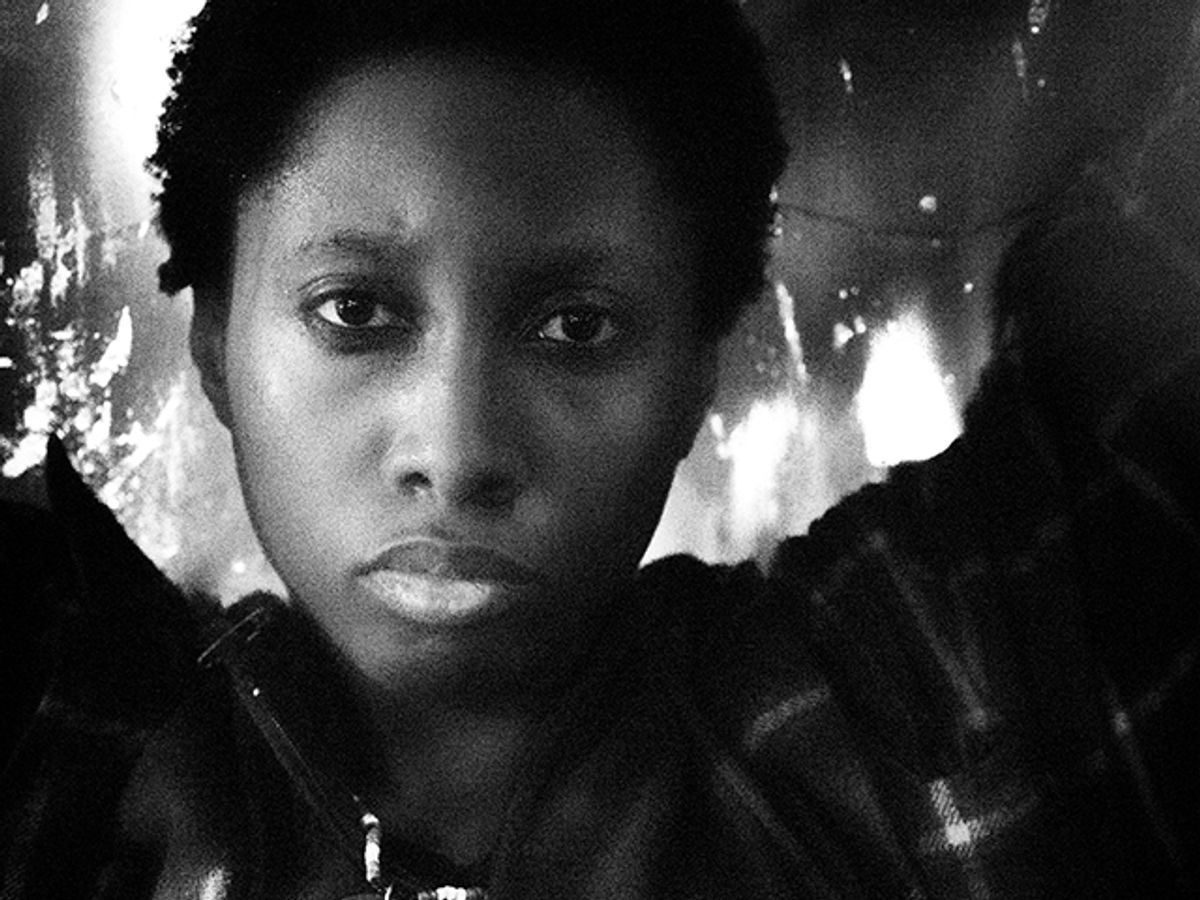There are images of Bree Newsome, the woman who scaled a pole and removed the Confederate flag in North Carolina; Lonnie King Jr., who co-founded the Atlanta Student Movement and led sit-ins in segregated establishments during the civil rights movement; Kwame Rose, who confronted Geraldo Rivera of Fox News about its biased reporting during protests in Baltimore; Rosyln Pope, who drafted an appeal for human rights in 1960; Raquel Willis, a trans activist and writer of color. These are just some of the icons photographed by artist-photographer Sheila Pree Bright for her exhibit "1960NOW."
Bright lives in Atlanta and began her project by photographing and discovering lesser-known activists from the civil rights movement and the city's profound organizing history. Then Trayvon Martin was killed.
So she felt compelled to get on the ground and inside communities to capture “the pain, the love and the frustration" of the Black Lives Matter movement that was growing across the country, Bright said.
Her portraits evolved from a body of work called "#1960WHO" to become "#1960NOW." Her framework became intergenerational and she took portraits “of the elders and the young people to talk about our humanity,” she said. Bright photographed in Ferguson, Missouri; Baltimore, Atlanta and Washington, D.C.
The portraits have a tight focus on the eyes and only in one does a subject smile.
“I wanted them to show confidence,” Bright said. But Charles Black — a leader in the Atlanta Student Movement in the 1960s — even smiled in his portrait. “I don't want you to smile,” Bright instructed. Black replied to her, “That's how I got through the movement.”
"#1960NOW" calls on viewers to seriously explore the connections between the civil rights movement and the Black Lives Matter movement. It puts aside differences in leadership modes and the debate over respectability politics. "#1960NOW" creates a type of dialogue and solidarity between the two generations and their methods of activism.
There’s Mike Brown Sr., father of the slain Ferguson teen, marching with his head down and wearing a hoodie that reads, “Mike Brown chosen for change.” There’s singer-actor Janelle Monae, with her eyes closed, her head tilted back in anguish. There are three young girls holding signs staring intensely, a woman with tears pouring down her face that are visible even from behind her large sunglasses.
“It becomes very emotional being on the ground. I'm not on the sidelines photographing, I get within the march and walk with them, and talk with them, and photograph,” Bright said. “I'm not just clicking the shutter of the camera, I'm looking for moments.”
Although Bright describes herself as an observer, she resists being labeled a a photo journalist. There was a deliberate effort on her part to show the nuance of the Black Lives Matter movement that many mainstream media outlets had missed, she said. “They depict angry black males; they're thugs; they're criminals,” she said about how mainstream outlets have represented communities of color, which results in mistrust.
“I want you to see the pain," she said about her work. "I want you to feel these people and look at these black bodies as human.”
But this wasn't so easy to accomplish. Bright was in Baltimore when Freddie Gray passed away and the following day when protests began. “I didn't know anybody, and I literally got cussed out. They said ‘we don't want you here’ — because the only time that you come into these neighborhoods is for something negative.”
“So I had to gain their trust and I started talking to a woman that lived in the community,” Bright said. A woman opened her home and became Bright's entry and guide to the neighborhood. “In all of my work, even if it wasn't a protest . . . they had to trust me.”
There’s a film component to the exhibit as well. Like the photographs, it’s a mashup of iconic moments in the history of black protest: Nina Simone declaring the artist must reflect the times; Janelle Monae chanting “Sandra Bland” in New York City; speeches by Martin Luther King Jr. and Kwame Ture (formerly known as Stokely Carmichael) and Kwame Rose going toe-to-toe with the Fox News anchor.
“On the ground, young people were saying to me, ‘We are fighting the same fights our parents and our grandparents were fighting.’ So I wanted to show that connection through film,” Bright said.
But by photographing contemporary activists who are trans, undocumented and on a spectrum of gender and sexuality, Bright doesn't gloss over the engagement with identity politics that is central to Black Lives Matter.
For the future, Bright hopes the commitment to protest, especially under the new administration, remains sincere. "I went to the women's march in Atlanta and it was a totally different vibe from me shooting protest images," she said. "And even though this was a protest, I felt like it was more like a parade. People were taking their selfies, they were shaking the cops' hands and everybody was just so happy about it, and for me, I was questioning how long is this going to last?"
"A lot of these women were mothers," Bright observed, asking, "Where was the compassion when 12-year-old Tamir Rice was killed?"
For Bright the answer to that question hasn’t been so clear and she wonders whether protesters really try to learn about one another or if they exist in separate bubbles. She finds partial engagement to be privileged and unequal. “When a black person or person of color is born, you're born into the movement,” she said. “Whether you like it or not.”
After all, one emblematic sign from the women’s march in Los Angeles in January, carried by Persian-American actor Amir Talai, captured a lot of attention and sparked a lot of discussion. “I’ll see you nice white ladies at the next #blacklivesmatter march right?”

Shares